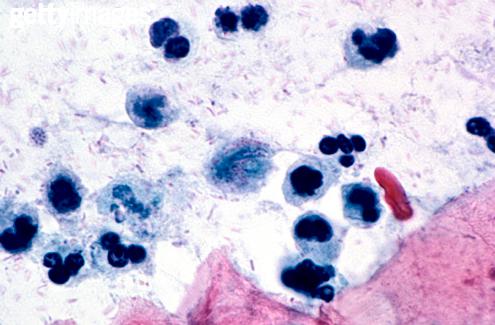How Can Men Get Rid of Non-gonococcal Urethritis Fast?
Date:2022-11-29 click:0
Non-gonococcal urethritis is a syndrome caused by a variety of etiologies. The pathogens are usually mycoplasma, chlamydia, trichomonas, herpes viruses, and fungi such as Candida. Typical symptoms of non-gonococcal urethritis are stinging pain in the urethra with urgency, frequency, painful urination, difficulty urinating, and a small amount of purulent discharge from the urethra. This disease brings a lot of pain to patients, so after suffering from it, men want to bail out of its torment quickly.

So what are the ways to get rid of non-gonococcal urethritis?
1. General medication for non-gonococcal urethritis
The recovery time of medication is short. From the start of treatment to the complete healing of the wart, and then the skin at the wart returns to normal, physical therapy takes about 20 days, while the whole process of medication only takes a few days. The skin is less damaged by medication and the recovery time is shorter after the wart is removed, usually 1-3 days.
After removing warts with medication, it can treat the viral infection around warts, that is, non-gonococcal urethritis subclinical infection, so it can effectively inhibit the recurrence of non-gonococcal urethritis. However, it may cause extensive erosion to the patient due to improper operation, which has certain risks.
2. The antibiotic method to treat non-gonococcal urethritis
There is a wide variety of antibiotics used to treat non-gonococcal urethritis, and 2 to 3 antibiotics should be used in combination according to the type of pathogenic bacteria and their sensitivity to the antibiotics in a targeted manner for better efficacy. Generally, patients can use tetracycline, doxycycline, erythromycin, etc., for treatment.
The antibiotics should be continued for 7 to 10 days after the symptoms disappear completely. Besides, patients had better wait until the urine examination returns normal and the bacterial culture is negative.
3. Adjuvant therapy for non-gonococcal urethritis
In the acute stage, patients should drink more water to increase the urine volume, which has a flushing effect on the urethra. Patients with urinary frequency, urgency, and pain can take antispasmodic drugs and remove the various triggers causing the symptoms. Non-gonococcal urethritis should be treated simultaneously with the spouse. Otherwise, it isn't easy to cure.
Men with non-gonococcal urethritis can suffer urethritis, prostatitis, epididymitis, erectile dysfunction, and even infertility if they do not get treatment promptly. Therefore, doctors should diagnose clearly through the patient's medical history and signs. Only based on the diagnosis can the treatment methods be correctly selected.
To recover quickly from this disease, patients should pay special attention to daily care and hygiene during treatment. Avoid holding urine, cleaning the private parts, and avoiding spicy and other stimulating foods. Eat more fruits and fresh vegetables, etc. Because this disease is sexually transmitted, it is best to avoid sexual contact until the sexual partner is completely cured. Patients should use condoms and other barrier tools and care for their hygiene in everyday sexual life.
Patients can also be treated with oral herbal medicine, urethral irrigation, and intestinal irrigation. The incubation period of non-gonococcal urethritis in men is 1-3 weeks, and some patients have insignificant symptoms. Patients are advised to go to the hospital in time once they find any discomfort to avoid the aggravation of the disease.
If patients use herbal medicine, they can choose Diuretic and Anti-inflammatory Pill, which has broad-spectrum antibacterial properties and can kill various bacteria and viruses causing male genitourinary diseases and other pathogens like mycoplasma, chlamydia, etc. Besides, it can help make gonorrhea quickly turn negative, reducing the suffering of patients.
Recommended Readings:



